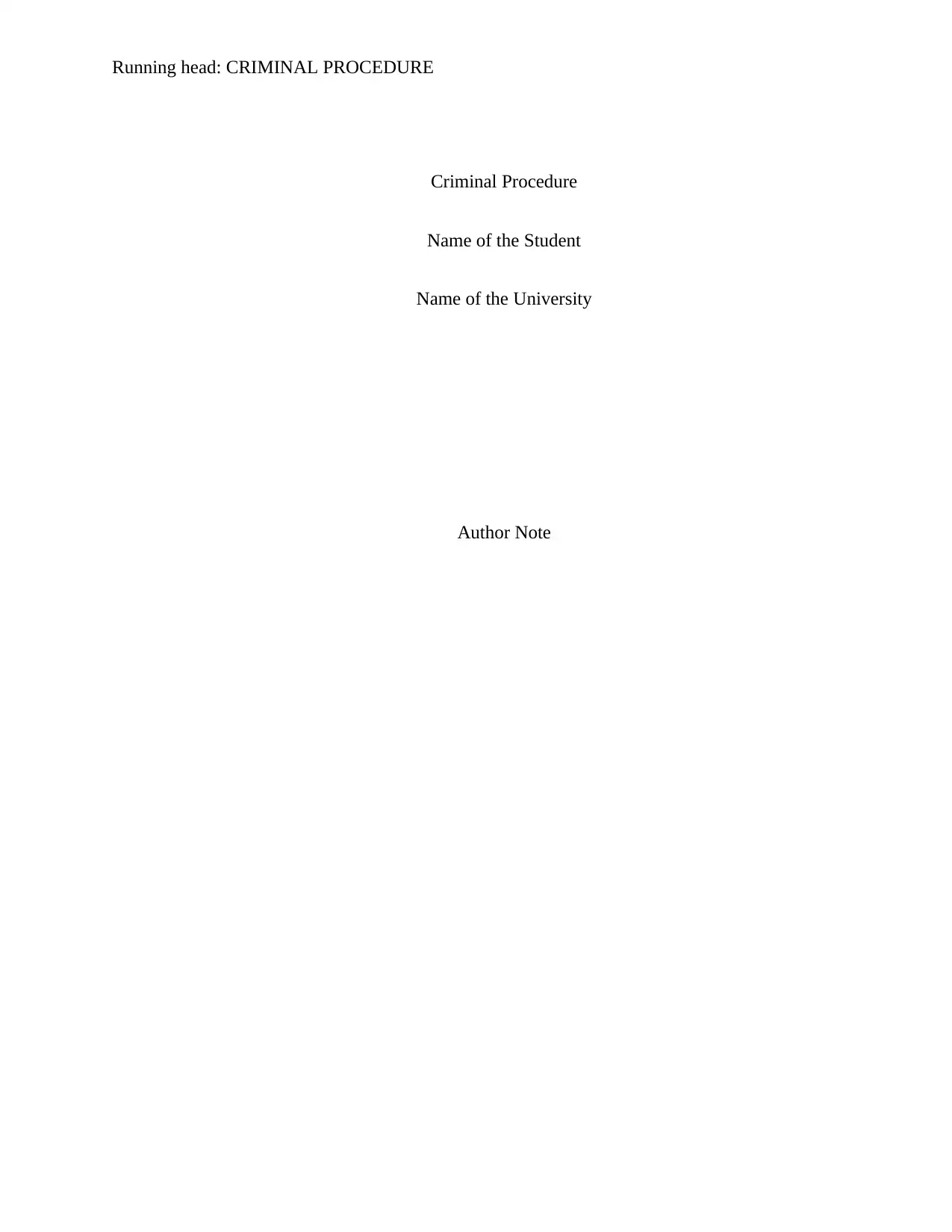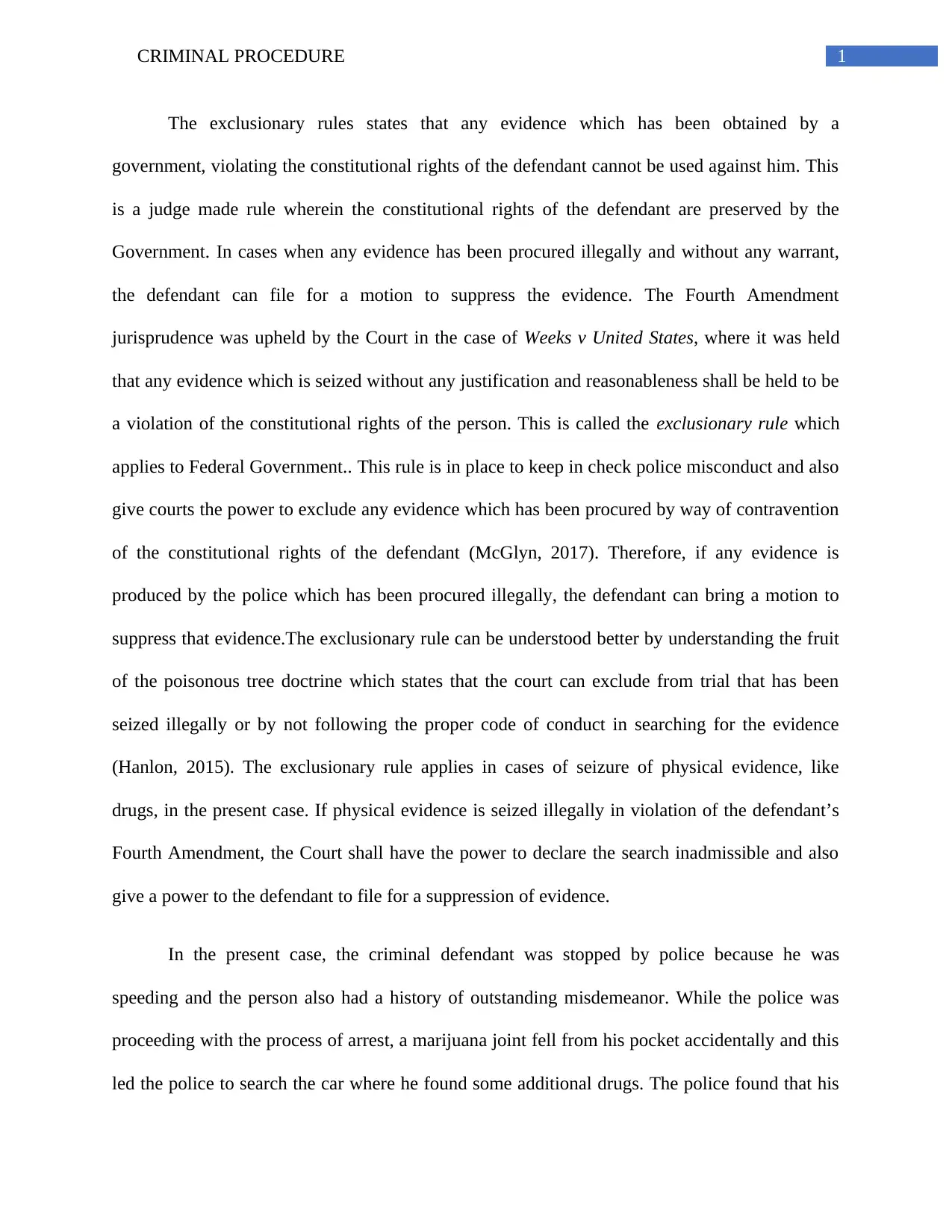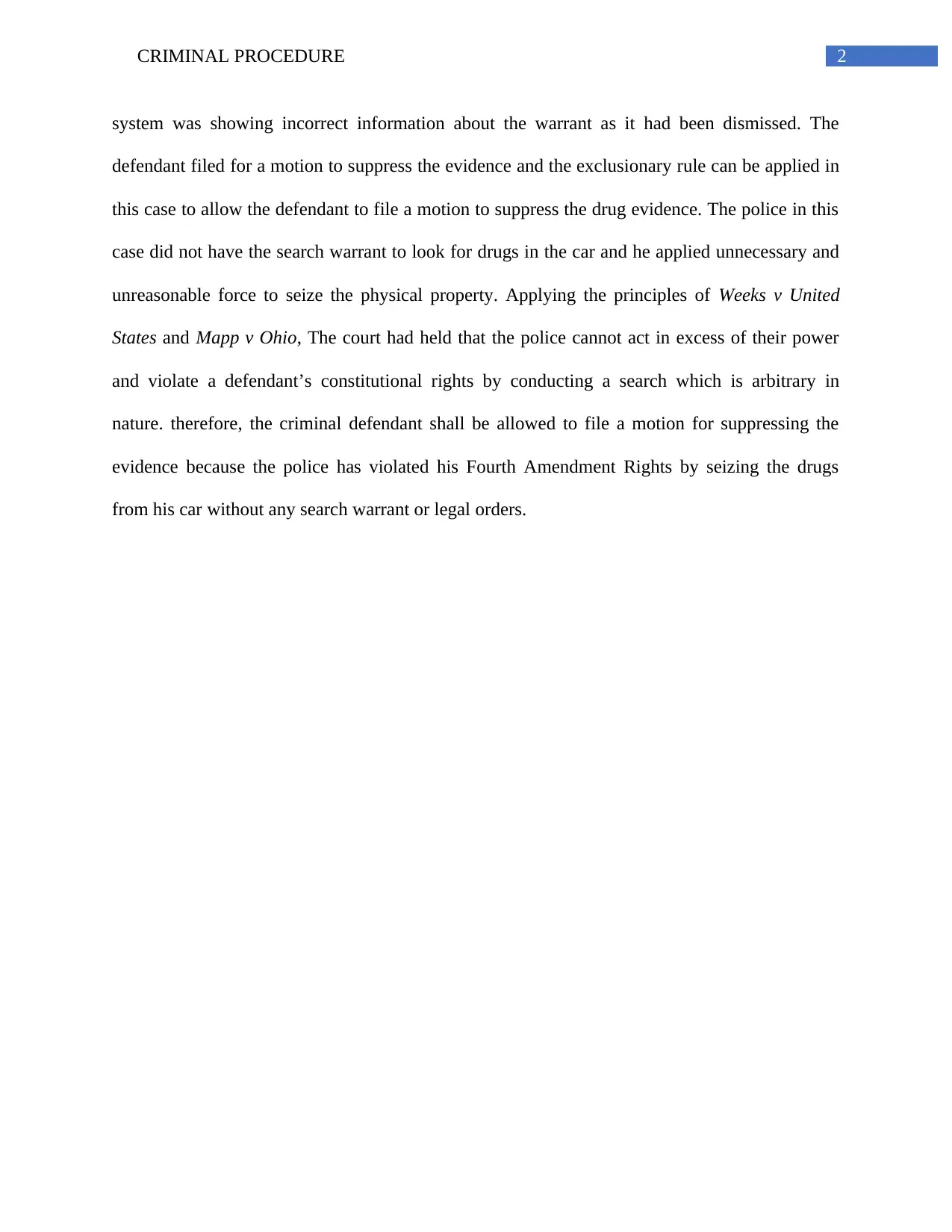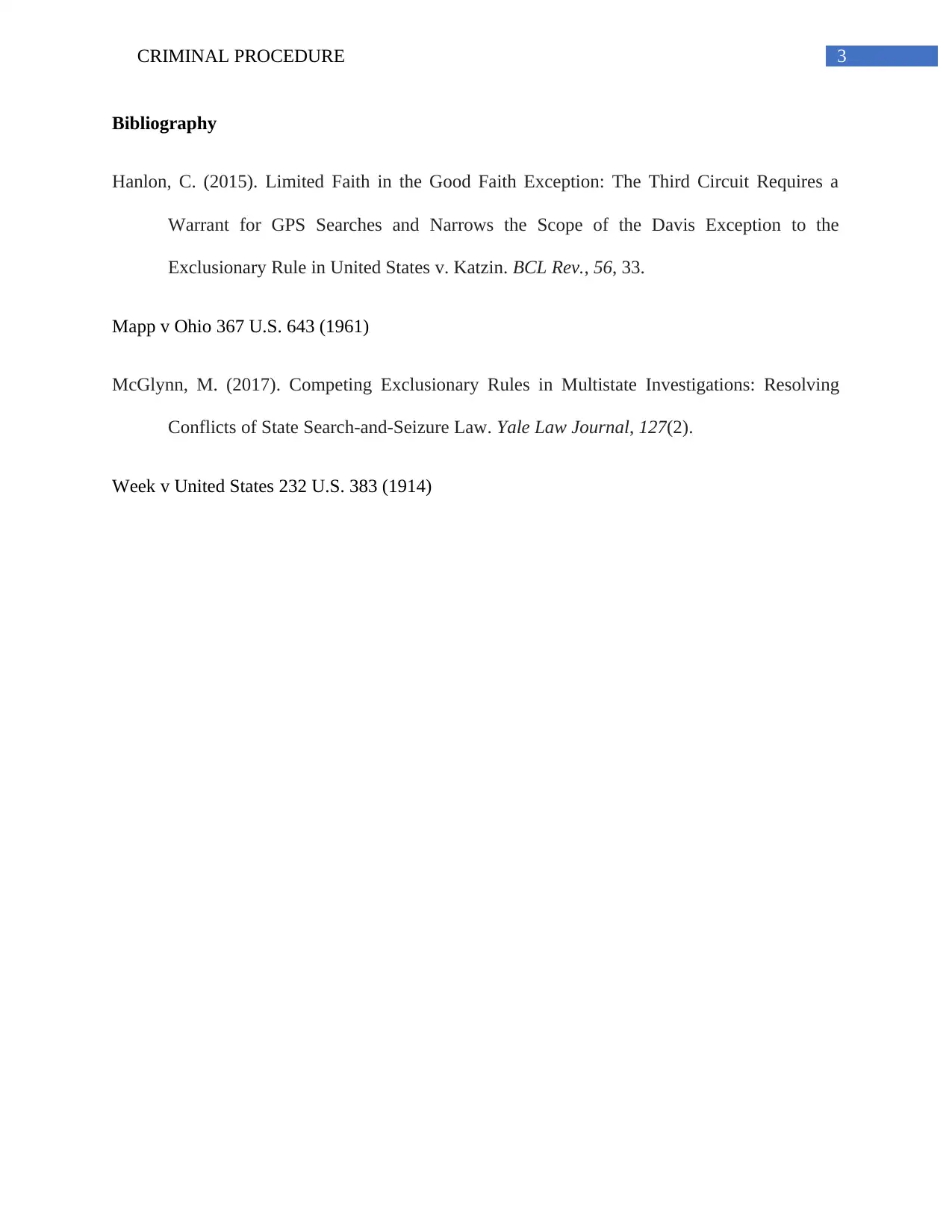Criminal Procedure: Exclusionary Rule and Fourth Amendment Rights
VerifiedAdded on 2023/06/11
|4
|671
|376
Essay
AI Summary
This essay delves into the exclusionary rule within the framework of criminal procedure, focusing on its application in suppressing illegally obtained evidence. The rule, preventing the use of evidence obtained in violation of a defendant's constitutional rights, is examined through landmark cases like Weeks v. United States and Mapp v. Ohio. The essay analyzes a scenario where a defendant, initially stopped for speeding, had drugs discovered during a search following an incorrect warrant system reading. It argues that the evidence should be suppressed due to the violation of the defendant's Fourth Amendment rights, as the police acted without a valid warrant or legal justification, highlighting the importance of upholding constitutional rights and preventing police misconduct. Desklib provides access to more solved assignments and study resources for students.
1 out of 4











![[object Object]](/_next/static/media/star-bottom.7253800d.svg)